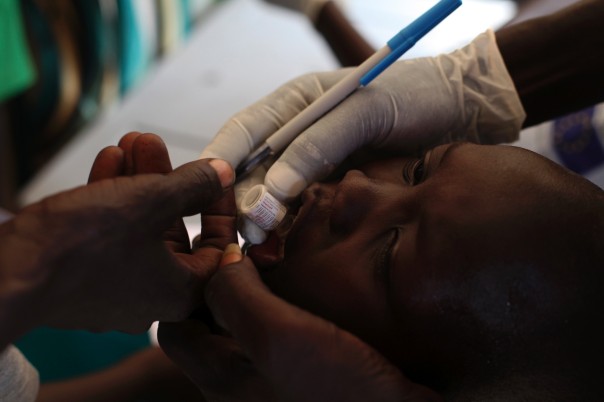Ghana is 2nd in West Africa for cholera outbreaks
- Posted on
- Comment
 Ghana is ranked second in West Africa for the highest number of cholera cases for 2014, following neighbouring country Nigeria.
Ghana is ranked second in West Africa for the highest number of cholera cases for 2014, following neighbouring country Nigeria.
The 2014 cholera ranking revealed by the United Nations International Children’s Emergency Fund (UNICEF), Communications Consultant, Emmanuel Addai, graded the West African countries from the highest to the least number of cases of cholera recorded in the previous year.
Last year, the country recorded a total of 28,944 cholera cases with 247 deaths, while Nigeria which topped the group recorded 35,946 cases of cholera and 755 deaths.
Last year’s cholera outbreak in the country was the highest recorded in recent times, comparing Nigeria’s population of over 170 million and Ghana’s over 25 million people.
Guinea Conakry was the last in the group with two cholera cases and no deaths in the year under review.
Mr Addai made this revelation at a media sensitisation workshop for journalists in the Central Region on open defecation organised by UNICEF and the Environmental Health Service Department of the Ministry of Local Government and Rural Development.
Ghana recently ranked second after Sudan in Africa for open defecation, with 19 percent of its population resorting to the sanitation practice deemed the riskiest of all.
The country has been performing abysmally with sanitation coverage of only 15 percent, making the practice of open defecation a key sanitation challenge because people do not have access to key basic facilities.
The practice does not only cost the county $79million a year but also poses the greatest danger to human health and can have fatal consequences, particularly for the most vulnerable, including young children.
The latest ranking therefore draws the link between the country’s sanitation problem and its related effects.
Mr Addai said although the country has managed to reduce its OD rate from 22 percent in 1990 to 19 percent in 2015, it falls short of the Millennium Development Goal Target of 11 for OD.
He said UNICEF through its Community-led Total Sanitation (CLTS) initiative is implementing the project that would help household have their own sanitary facility with the support of the sector ministry.
Five districts, namely Abura-Asebu- Kwamankese, Gomoa East, Ajumako-Enyan-Essiam, Assin South and Asikuma-Odoben-Brakwa are beneficiaries of the CLTS initiative in the Central Region.
By Jamila Akweley Okertchiri










 (Selorm) |
(Selorm) |  (Nana Kwesi)
(Nana Kwesi)